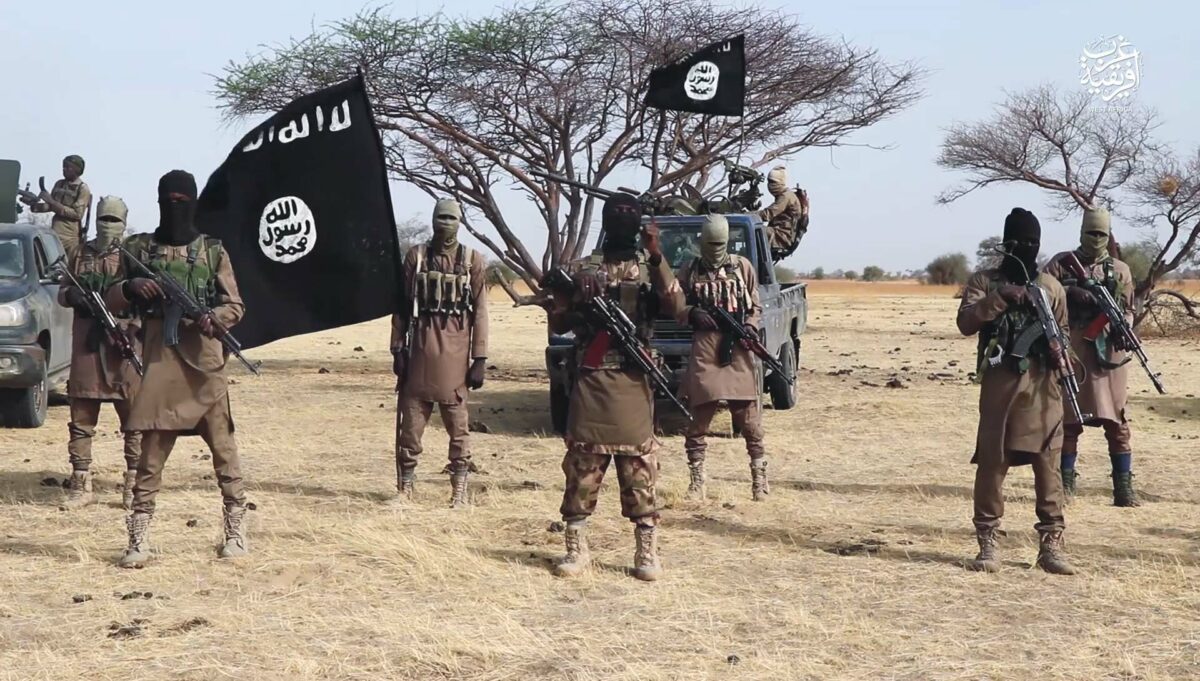No fewer than 657 civilians have been killed by the Boko Haram in the last 11 months, a tally by Daily Trust and an international agency has shown.
The terrorists have also killed 592 state actors including security operatives, government officials, humanitarian workers, civilian task force, and others.
This brings the number of people killed to 1,249.
Thousands of people have been killed by the Boko Haram terrorists in the last 11 years, and like some of those that occurred this year, many killings are hardly reported by the media because of some obvious reasons.
As the year 2021 is inching closer, many families, especially in Borno and Yobe states would live to remember 2020 as an ugly one that deprived them of their loved ones.
The Council on Foreign Relations (CFR) in its Nigeria Security Tracker shows that 657 civilians have been killed by Boko Haram between January and November 2020.
The CFR’s Nigeria Security Tracker is an effort to catalogue and map political violence based on a weekly survey of the Nigerian and international press.
CFR is a nonpartisan membership organisation, founded in 1921, that works on providing a resource for its members; government officials, journalists and other interested citizens to help them better understand the world.
The council, which relied on press reports of violence in its report, noted that there is a dearth of accurate reporting across certain regions, death tolls are imprecise, and accounts of incidents vary.
The tracker showed that 179 civilians were killed in June – the highest in 2020, followed by November with 130, while 81 and 52 civilian deaths were recorded in January and August respectively. March had the least with 13 deaths followed by April with 24.
However, newspaper reports compiled by Daily Trust Saturday showed that 396 people were killed by Boko Haram under the period in review.

“There is the potential for political manipulation of the media. Given these limitations, the NST makes every effort to collect information from multiple sources. Nevertheless, NST statistics should be viewed as indicative rather than definitive,” the council said on its website, adding that the Nigeria Security Tracker was edited by Ralph Bunche Senior Fellow for Africa Studies, John Campbell.
As the council reported, this number, however, could rise as several cases were either unreported or exact number of causalities unknown as was the case with the farmers killed in Zabarmari, Jere Local Government Area of Borno State which fuelled calls for President Muhammadu Buhari to sack the service chiefs.
There have also been calls in some quarters for the resignation of the president due to the growing insecurity in the country. The presidency described such calls as irresponsible.
Nightmares of Borno residents
Victims and survivors of insurgency in Borno State live with shattered dreams and sleepless nights from gory images of how their loved ones were killed.
A lecturer with the University of Maiduguri, Musa Aji, said his pregnant wife and father-in-law were shot dead by the insurgents in separate incidences.
“I always remember the memories of my late wife,” he said.
He lives with the memory that his wife and unborn child died because of his profession as he was the prime target.
According to him, “The insurgents killed my wife because they suspected she aided my escape.
“I have two wives living in separate areas in Maiduguri. I was not in the house of the deceased wife when they came and asked for me. She told them I was not around but when she discovered their identity and mission, she warned me to stay away otherwise they would lay in wait and kill me and I heeded her advice,” he said.
The lecturer sought refuge at the university where the authorities offered him accommodation at a guest house and a few days later, the killers returned to the house and requested to know his whereabouts from his pregnant wife.
“She called and said the same individuals returned and asked for me and she told them I was not around and they left,” he said.
However, when the insurgents discovered that the woman had revealed their identity to her husband, they resolved to kill her.
“They were at my house two weeks after their first visit but my wife told them I was not in. They probably assumed she shielded me from an attack after discovering who they were and they opened fire on her.
“It was hard for me; she was pregnant when she was killed and left behind six children. It took time to unite the kids with my second wife,” he said.
The father of the deceased woman, according to the university don, who was an assistant comptroller with the Nigeria Correctional Service, was shot dead in front of his house where he was sleeping on a mat.
“He was killed six months before his daughter,” he said.
According to him, there was no end in sight to the insurgency despite the concerted efforts of the authorities and there was the need to involve the community members in counterinsurgency.
Another survivor of Boko Haram attack in Baga, Ibrahim Modu, said he has not seen his 11-year-old son since a major attack was launched on the town on January 3, 2014.
“My son who had just completed basic education disappeared in that attack and I have not heard anything about him since then. Many drowned in the lake while dozens were killed,” he said.
He said the insurgents launched a predawn attack on the area and two military formations belonging to the Joint Multinational Task Force by 6 am. Residents of Baga town who got wind of the attack had mobilised youth to face the insurgents with sticks, clubs and arrows.
“We met the advancing terrorists at Musari village heavily armed with military-style weapons and had to retreat to Baga, Doro, and Dabar Shata in Kelwaram near Lake Chad, and those of us who could swim jumped into the water while many who could not escape were killed,” he said.
The insurgents later went into Baga town and abducted women and girls, according to him.
“I was in the water with other people from 1 pm to 6 am. We later moved to a place called Milnati and boarded a vehicle to Maiduguri and two weeks after, I went to Monguno where my family sought refuge,” he said.
Troops were said to have reclaimed Baga after 45 days and the inhabitants returned.
Baga was also seized on December 26, 2019, by the insurgents who instructed people to leave with their belongings.
“But the attackers set up roadblocks and searched people. Those found to be uniform personnel were killed. A commercial vehicle driver seen with the identity card of Civilian JTF was killed,” he said.
Boko Haram insurgents have continued to ambush farmers in Bama and Gwoza areas of the state according to a trader in Bama town.
“Two ladies, including my cousin and a man were abducted on a cowpea farm behind a public higher institution in Bama two weeks ago. My brother, who was a farmer in Zabarmari, was among the 74 farmers slaughtered by the insurgents.
“I was supposed to be in the farm with the deceased on the day of the attack but I travelled; that was what saved me,” he said.
No Response from the Military
When contacted on Friday, the Coordinator Defence Media Operations, Maj. Gen. John Enenche, and the Army spokesman, Col. Sagir Musa, could not be reached for comments.
But Enenche had in a weekly press briefing on Thursday, allayed the fears of Nigerians particularly residents of North East, saying they should not be discouraged by the killings.
He described Boko Haram insurgents’ recent claims on the number of people killed as “propaganda” meant to instil fear in the people.
The senior military officer stressed that the claim was the practice of the sect with the sole motive of instigating fear in the minds of the people to discourage them from cooperating with the security agencies.
According to him, “The truth is that whenever they are losing ground as a result of the military activities, this is what they resort to.
“They want to use that to instil fear in the minds of the people because they have seen the governor trying to make sure that people return to their homes.”

 Join Daily Trust WhatsApp Community For Quick Access To News and Happenings Around You.
Join Daily Trust WhatsApp Community For Quick Access To News and Happenings Around You.


